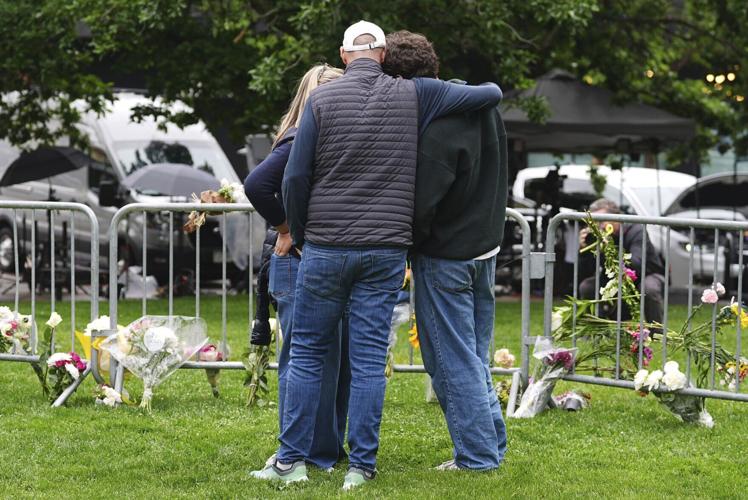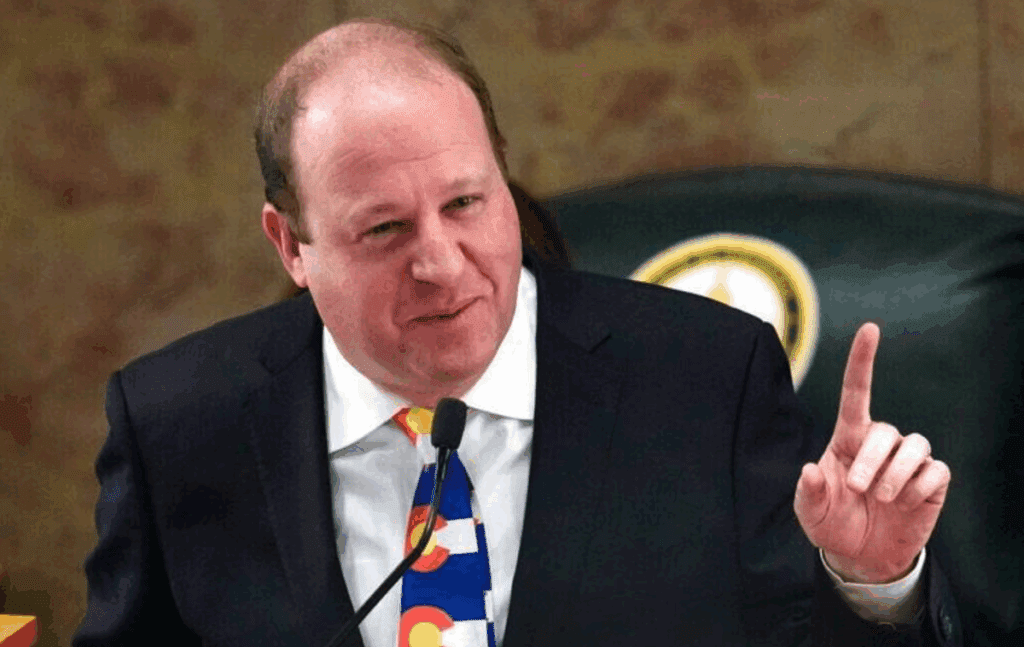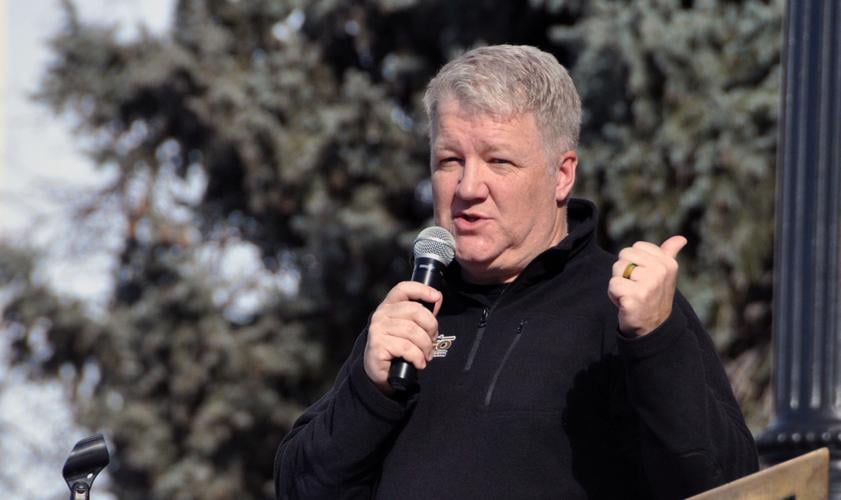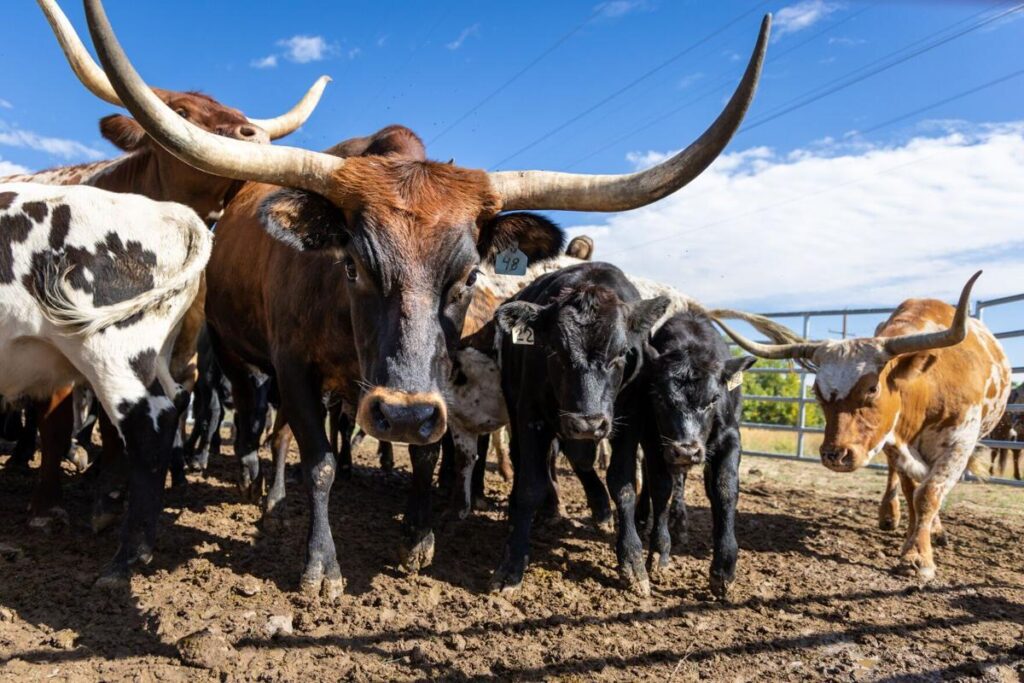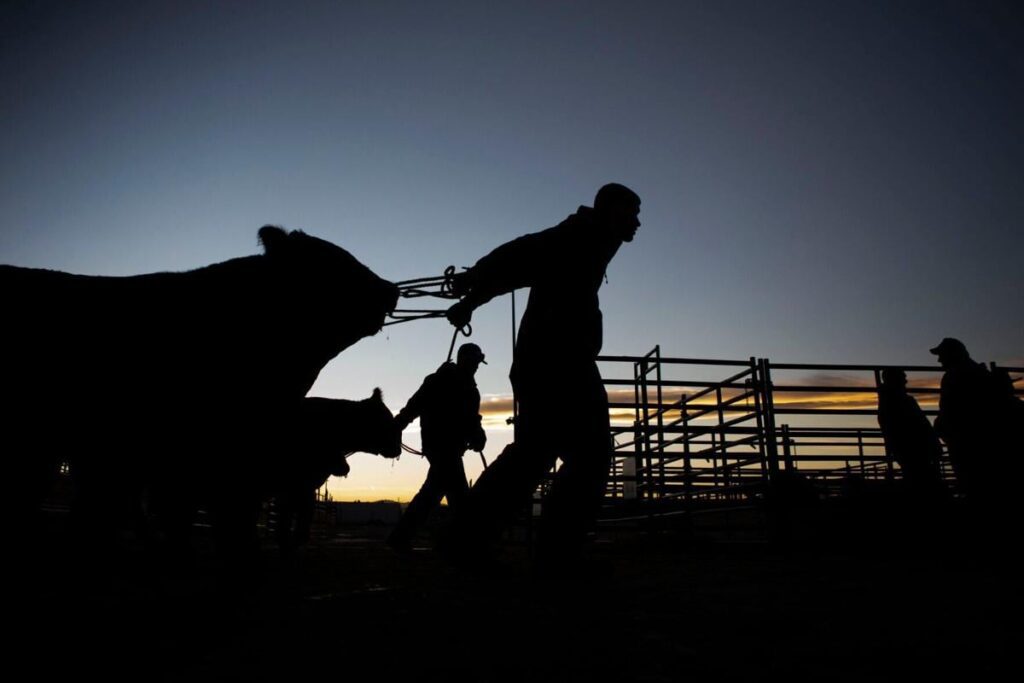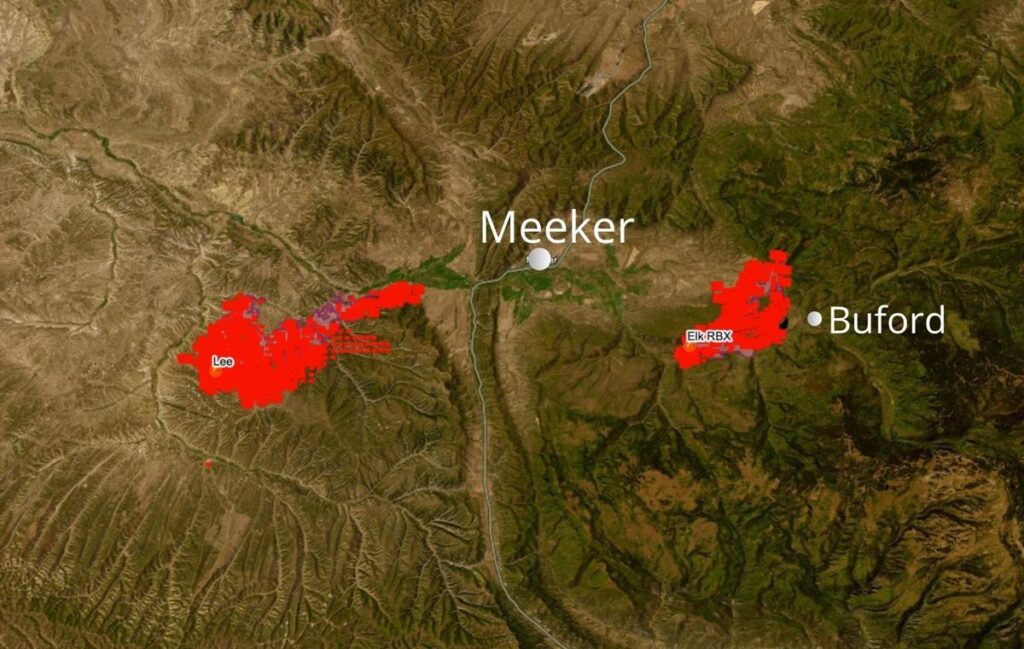Prosecutor plans to review Keyser petitions, circulator ‘passed background check’ for another candidate

Denver District Attorney Mitch Morrissey’s office on Friday began a preliminary review into allegations nominating petitions that helped Republican U.S. Senate candidate Jon Keyser make the June primary ballot contained forged signatures, according to the state’s top election official and the director of a liberal organization that had asked local prosecutors to look into the charges.
A spokeswoman for Secretary of State Wayne Williams told The Colorado Statesman late Friday afternoon that the petitions submitted by Keyser “aren’t being made public” while the office determines its response to a request by Denver prosecutors to examine the original documents.
The same day, another local prosecutor, District Attorney George Brauchler, told The Statesman that his office would take seriously allegations about fraudulent signatures on a candidate’s petitions, potentially leading to an investigation and – if there’s enough evidence – prosecution of what could be a felony under Colorado law.
The Arapahoe County Republican said his office hadn’t received any complaints about forgery on a candidate’s nominating petitions by early afternoon Friday but encouraged anyone who believes his or her signature has been forged on any petition to report it to prosecutors.
Also Friday, the spokesman for a legislative candidate whose campaign employed the same petition circulator tied to numerous allegedly fraudulent signatures on Keyser’s petitions said the woman “passed a background check,” although she didn’t collect many signatures during her brief stint with the other candidate’s campaign.
The Keyser campaign responded Friday to a request for comment with a statement pointing out that petition circulators sign a legal document that says they have followed the law.
“All signature gatherers sign an affidavit promising they will comply fully with the law, including a promise that they personally witnessed every signature on their petition,” Keyser campaign spokesman Matt Connelly told The Statesman. “That affidavit also says that they are aware of the consequences associated with disobeying the law.”
Petition circulators sign a document saying they “solemnly affirm under penalty of perjury” that “Each signature on this petition is the signature of the person whose name it purports to be,” in addition to other statements affirming that legal requirements have been met.
Keyser’s petitions drew attention last week when Denver7 reporter Marshall Zelinger noticed that the signature of a petition circulator on the accompanying affidavit bore a distinctive quirk – a loop at the top of many capital letters – that also appeared on numerous other signatures on the pages she’d turned in.
The circulator, whose first name is “Maureen” (reporters haven’t publicized her last name), no longer appears to live at the Aurora address she listed on the paperwork filed with Keyser’s petition. The Statesman’s attempts to contact her this week have been unsuccessful.
It turns out another candidate, Republican state Senate candidate James Smallwood of Parker, also briefly employed “Maureen” as a paid circulator, but only after she passed a comprehensive background check, a campaign spokesman said.
Smallwood is one of three candidates on the GOP primary ballot in Senate District 4, a seat represented by the term-limited Senate Majority Leader Mark Scheffel. (The other two candidates, Jess Loban and Benjamin Lyng, qualified for the ballot at the district assembly.)
Smallwood, who made the ballot with plenty of signatures to spare – needing 1,000, he turned in 2,008 signatures and 1,207 were accepted, the secretary of state’s office said – told The Statesman on Friday that he was stunned to learn the circulator at the center of Keyser’s petition controversy had worked for his campaign, even a few steps removed through various contractors.
“If, ultimately, at the end of the day, I had enough signatures, that’s what I’m focused on, was to be on the ballot,” he said, adding, “It’s certainly something I’ll look into.”
A spokesman for Smallwood, Kyle Forti, whose firm D/CO Consulting didn’t start working for the campaign until weeks after the petition drive had finished, said “Maureen” only worked for the campaign for three days and collected just 36 signatures.
A spokeswoman for the Denver district attorney said Morrissey’s office received a letter Thursday calling for a criminal investigation into Keyser’s petitions from ProgressNow Colorado, the left-leaning group whose discovery last week that the candidate’s petitions included a suspicious signature sparked the snowballing controversy.
“As is the practice of our office, specifically the Economic Crime Unit, they review the original complaint and any accompanying documents to determine if there was a crime committed, whether the suspect is identifiable and if we have jurisdiction,” said Lynn Kimbrough, the district attorney’s communications director, in a statement.
“Many times this review is accomplished very quickly and other times it takes a while and more documents are gathered. If a decision is made to investigate the matter completely then it will proceed to formal investigation. If it is not assigned for further investigation we are obligated to tell the complainant the reason for the denial of their complaint so that they can proceed to another jurisdiction or seek other remedies available to them,” she said.
ProgressNow Colorado Political Director Alan Franklin said he sent the letter to district attorneys after first calling on Williams to investigate the allegations when it became clear the secretary of state’s office believed its hands were tied once it certified candidates onto the ballot.
“We do not investigate,” Lynn Bartels, communications director for the state agency, told The Statesman this week. “We are not an investigative agency.”
She stressed that the state’s petition verification doesn’t include checking signatures against those on file with election officials, although that is something county clerks do when voters turn in mail ballots.
“If voters feel someone forged their names to a petition, they can contact their district attorneys,” Bartels said. “At this point, we have a court order telling us to put Jon Keyser on the ballot, and that is what we have done.”
Franklin asked Morrissey and District Attorney Pete Weir, who prosecutes crimes in Jefferson and Gilpin counties, to investigate Keyser’s campaign for “a pattern of fraudulent activities.” He cited as evidence reporting by Zelinger that 10 Republicans whose signatures appeared on Keyser’s nominating petitions denied they’d signed the documents.
The questionable signatures appeared on petition sheets that included Denver and Jefferson County voters from precincts that are part of the 1st Congressional District, where Keyser collected just 20 more signatures than he needed to qualify for the primary ballot.
Colorado law requires statewide candidates to submit 1,500 valid signatures from each of the state’s seven congressional districts, for a total of 10,500. Keyser turned in 16,067 signatures, and the secretary of state’s office determined that 11,436 were valid. However, he fell 86 signatures short of the required number in the 3rd Congressional District and appealed the ruling in Denver District Court, arguing that Williams had thrown out otherwise valid signatures on technicalities involving the circulator’s address. A judge agreed and ordered Keyser on the ballot.
Two other candidates also went to court last week to challenge rulings that they didn’t turn in enough signatures. One of them, Colorado Springs businessman Robert Blaha, won an order placing him on the ballot, while the other, former Aurora City Councilman Ryan Frazier, lost his case but is appealing to the Colorado Supreme Court.
Meanwhile, Frazier’s name will appear on ballots – county clerks were required to mail them to military and overseas voters on Friday – but he has agreed that he’ll withdraw and his votes won’t be counted if he loses his appeal. The high court agreed Thursday to hear Frazier’s case, which argues that some of the state’s requirements for petitioning candidates are unconstitutional.
El Paso County Commissioner Darryl Glenn and Fort Collins businessman Jack Graham are also on the primary ballot. Glenn won an overwhelming vote from delegates at the Republican state assembly in early April, defeating nine other candidates who had gone through the caucus and assembly process. Graham qualified by turning in enough petition signatures.
The winner of the June 28 mail-ballot primary will face U.S. Sen. Michael Bennet, the lone vulnerable Democratic senator on the ballot this year, although political observers have been increasingly tilting the odds toward Bennet.
A spokeswoman for Weir said the Jefferson County district attorney’s office hadn’t received any complaints from voters who believed their signatures had been forged on petitions as of Friday afternoon. While Weir had received the ProgressNow letter, he wouldn’t discuss it, even declining, through a spokeswoman, to say whether forging a signature on a nominating petition was against the law, citing a policy against speculating on matters that could later be involved in an investigation.
But Brauchler – who made clear that his office hadn’t received either any complaints about fraudulent petition signatures or a recent request to investigate any nominating petitions – pulled no punches when asked whether it might be illegal to sign someone else’s name to a petition.
“It is illegal to forge a name on a nominating petition that is filed with the State of Colorado,” Bruachler told The Statesman. “Under Colorado law,” he said, citing C.R.S. 1-13-106, “any person who ‘forges any name of a person as a signor or witness to a petition or nomination paper’ commits the crime of forgery,” which is a Class 5 felony punishable by up to three years in prison and a fine of up to $100,000. In certain cases, he noted, the potential prison time could increase to six years.
“We consider forgery of candidate petitions to be a serious matter that we would diligently investigate if an instance of it occurring in this judicial district was brought to our attention, and we will prosecute those cases where there is sufficient evidence,” Brauchler continued. “We encourage any persons with knowledge of this or any other election offense occurring in the 18th Judicial District to report it to us. If it happened outside of this judicial district, we encourage citizens to report violations to the appropriate District Attorney’s office.”
Connelly’s statement on Friday marked a sharp departure from a day earlier, when Keyser refused to answer questions about the possibility his petitions included forged signatures at a candidate forum and in interviews with television reporters.
“I’m on the ballot, and I’m going to beat Michael Bennet,” Keyser said in response to the first question, posed by Joe St. George of Fox31 Denver, at a forum sponsored by the Foothills Republicans. (A reporter with The Statesman was also a moderator at the forum.)
“I am going to beat Michael Bennet in November. I am on the ballot, and I really ask for your vote,” he said moments later, after charging that Democrats were “doing everything they can to derail me from being on the primary ballot.” As St. George repeatedly asked Keyser if signatures on his petitions were forged, the candidate said “I am on the ballot” three more times and again accused Democrats and liberal groups of “doing everything they can” to “derail” his campaign.
In an interview Zelinger conducted during a break at the forum, Keyser twice called the reporter “Mitchell,” while repeating variations on the same points. “Here’s the important thing: The important thing is that I’m on the ballot, OK?” Keyser said before talking about his 165-pound Great Dane – “He’s huge. He’s a big, big guy. Very protective” – and then circling back. “I’m on the ballot. I’m on the ballot,” he said. “There are people like you that have done the Democrats’ work.”
Video of Keyser’s remarks at the forum and his interview with Zelinger drew national attention, with the Washington Post calling it his “Marco Rubio moment,” referring to the Republican presidential candidate’s rote repetition of a phrase during a presidential debate earlier this year before the Florida senator dropped from the race.
– ernest@coloradostatesman.com




